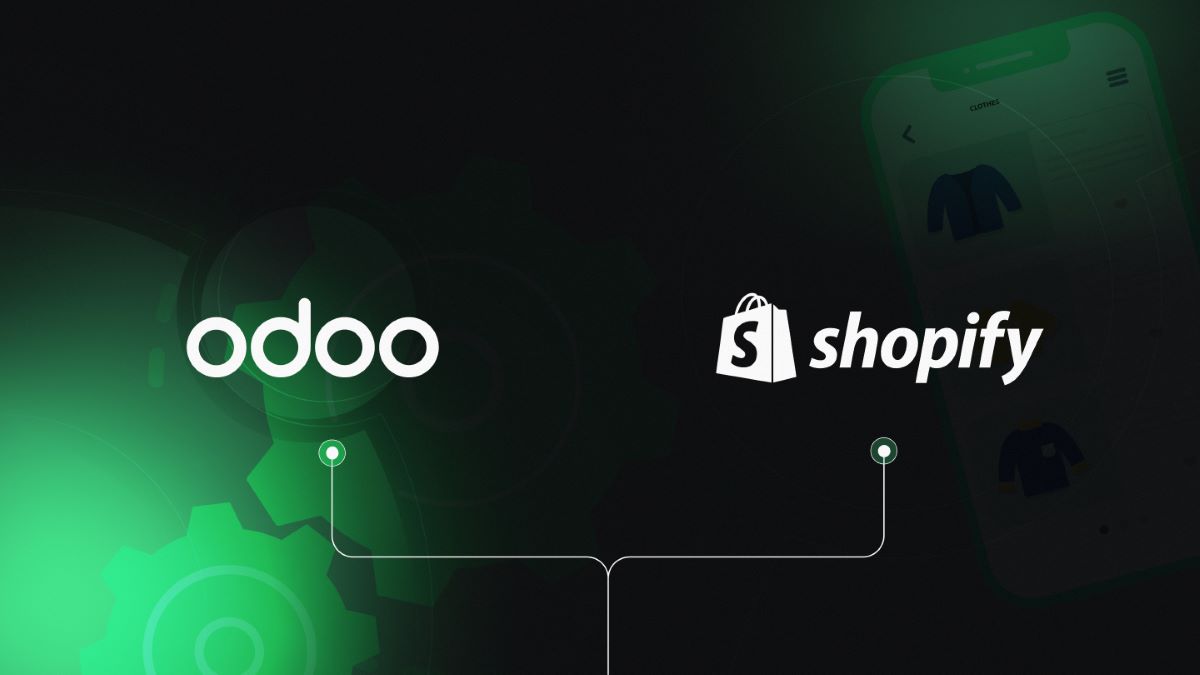
From Manufacturer to DTC Brand – How Manufacturing Companies Use Shopify for Direct‑to‑Consumer Sales
Traditionally, manufacturers have relied on distributor networks, wholesalers and retailers. Today, more and more companies are choosing direct‑to‑consumer (DTC) online sales to capture higher margins and build closer customer relationships.

Shopify has become the e-commerce platform of first choice for emerging DTC brands in recent years. With its SaaS model and rich app ecosystem, Shopify allows manufacturers to quickly build their own online store and scale sales in Poland and abroad. In the following section, we will look at Why do manufacturing companies choose the DTC model, what Shopify features that support direct-to-consumer sales and what business benefits offers manufacturers the transition “from the manufacturer to the DTC brand”. Finally, we will mention how attomy supports such transformations on concrete examples.

Why do manufacturers choose direct-to-consumer (DTC) sales?
Transition to the model Direct-to-Consumer represents a major change for the manufacturer, Eliminating middlemen in reaching the customer. Such a transformation brings with it a number of tangible business benefits. It's no surprise that more and more manufacturers are opting for direct sales through e-commerce — they're noticing financial, strategic and marketing benefits resulting from the omission of traditional distribution. Here are the main reasons why the DTC model is gaining popularity among manufacturing companies:
- Higher margins and price control Selling through intermediaries means sharing the profit. In the DTC model, the manufacturer retains the full margin, because it sells directly to end customers. It does not have to “give” part of the price to retailers or wholesalers, which translates into higher profitability. It can thus offer competitive prices for customers, while maintaining or increasing their own profit.
- Full control of brand and customer experience “In the traditional model, it is the intermediary who decides how the product is displayed on the shelf and whether he actively promotes it. The manufacturer has limited influence on the way the offer is presented and the shaping of the brand image. In their own D2C store the manufacturer fully controls the customer shopping experience — independently creates descriptions and presentations of products, conducts marketing communication, establishes pricing strategy and promotions. Such freedom allows you to take care of consistent branding, stand out from the competition and build stronger brand awareness. The manufacturer decides all the elements of customer interaction, making it easier to gain customer loyalty and build a community around the brand.
- Relazione diretta con il cliente — By selling directly, the manufacturer refers direct contact with the end user, which was previously “hidden” behind an intermediary. Such a relationship enables ongoing dialogue with customers, gathering feedback and suggestions, and a better understanding of their needs. Feedback from buyers (reviews, comments, service questions) is invaluable — it allows you to improve products and service based on real market data. Moreover, having access to customer data (demographics, preferences, purchase history), the manufacturer can personalize the offer and marketing communication. A direct channel also builds more trust — customers feel authentic contact with the brand, which translates into stronger loyalty.
- Shorter time-to-market — Having its own sales channel, the manufacturer can implement much faster nieuwe producten or modifications to the offer in response to trends. He does not have to wait for orders from distributors or a place on store shelves - in the DTC model he himself decides the release date of a new collection or product. Shortening time-to-market is crucial especially in rapidly changing industries (e.g. fashion, electronics, cosmetics). DTC gives flexibility here — the manufacturer can react to changes in demand almost immediately, gaining a competitive advantage.
- Wider reach and new markets Direct selling online allows you to reach customers outside the traditional distribution network. An online store available 24/7 opens up the possibility of selling in other regions of the country and even international expansion without the need to build a physical distribution network. With digital marketing, a manufacturer can relatively easily acquire customers from new segments and markets, scaling the business globally. (Expanding on this point is facilitated by the Shopify Markets feature, more on that next.)
Of course, the D2C model also comes with challenges — the manufacturer takes on responsibilities related to customer service, logistics or marketing, and sometimes has to manage relationships with existing intermediaries. However, with proper preparation and technological support, the benefits of DTC usually outweigh the difficulties. The key to success is choosing the right e-commerce platform and gradually optimizing new sales processes.
Shopify as a direct-sales platform for manufacturers
platform Shopify stands out as a friendly solution for companies entering the direct channel. Often it is Shopify that is chosen by manufacturers setting up their own DTC store, due to the speed of implementation and a rich set of features tailored to the needs of both sales B2C, as well as B2B. Below are the key Shopify features supporting the direct sales model that DTC brands originating in the manufacturing sector can benefit from:
- Easy product and inventory management — Shopify's intuitive dashboard lets you quickly add products, descriptions, photos, and manage variations (such as different sizes, colors, or models). The manufacturer can define their own attributes and variant combinations, and Shopify automatically tracks inventory levels for each variant. For more advanced needs, applications are available (the so-called. Produktcustomizerer) allowing the customer to configure the product (e.g. selection of components, personalization of engraving, etc.). Thanks to this, even a complex assortment or custom-made products can be clearly presented online, and customers have the opportunity to customize the product to their needs before buying.
- Shopify Markets — global sales from a single store — Function Shopify Marketplace facilitates foreign expansion and international sales from a single administrative panel. It allows you to configure separate “markets” (groups of countries) with local settings — currency, price rates, language, payment methods, domain or subfolder, and shipping options. For example, in one Shopify store, a manufacturer can simultaneously serve the “Poland” market (zlotys, Polish forms of payment, content in Polish) and “Europe” (euro, English-language version, international delivery). Customers are automatically directed to the correct version of the store based on geolocation or country selection. Shopify supports multiple currencies (with the option to set local prices automatically or manually) and languages, and makes it easy to manage duties and taxes for different regions. For the manufacturer, this means the possibility of global development without the need to create separate stores — all sales in many markets are managed centrally, which is a great organizational facilitation.
- Subscription model (Shopify Subscriptions) More and more DTC brands are offering a subscription or recurring order model, especially if products are used cyclically (e.g. food, cosmetics, supplements) or want to build loyalty (subscription programs). Shopify allows you to deploy subscription sales using dedicated apps based on the platform's subscription APIs. Thanks to them, customers can order products in cycles (weekly, monthly, quarterly, etc.) with automatic settlement of payments. The store admin has visibility into active subscriptions, can offer discounts to subscribers, and customers have the ability to easily manage their plan (pause, change frequency, cancel) through the customer account. Subscription sales translate into revenue predictability and higher Customer Lifetime Value (LTV), which is very attractive to manufacturers.
- Wholesale (B2B) and D2C on one platform “Many manufacturers want to serve both retail customers and their regular wholesale customers in parallel. Shopify (especially in the plan Shopify Plus) allows you to achieve this within a single system. Functionality B2B on Shopify allows you to create separate accounts for wholesale partners and assign them individual price lists, wholesale discounts, payment methods (e.g. deferred transfer) or order thresholds. What is important, both the D2C store and the B2B portal work in one admin panel, and the data on products and states are common. So the manufacturer does not have to maintain two different platforms — wholesale and retail are integrated and coherent. This makes it easier to manage the offer and warehouse, as well as avoid duplication of costs. For more advanced needs, Shopify Plus gives you the ability to create so-called expansion stores (additional sites under the same license) — for example, separate stores for different brands or markets — which is useful for companies with a global reach or several brands at the same time.
- Optimal checkout and payment — The checkout process in Shopify is known for its high conversion rate due to its simplicity and speed. The form is mobile-friendly and provides all the necessary distraction-free options. A manufacturer using Shopify has access to many integrated payment methods — from credit cards, through systems such as PayPal or Apple Pay, to local solutions (in Poland, for example, BLIK, PayU, etc.). This allows customers to conveniently pay with their preferred method, which increases the purchase completion rate. The Shopify Plus plan comes with an advanced option Checkout Customization — you can add scripts and custom elements (e.g. check boxes, automatic discounts for large orders, hiding selected payment methods for specific customers). This gives manufacturers the flexibility to adapt the purchasing process to the specifics of the offer — for example, a different checkout for an individual customer and a different one for a wholesale partner, all within a single store.
- Fulfillment and logistics of orders Shopify offers a suite of fulfillment tools, which is critical in the new direct selling model. The administration panel allows you to track orders from the moment of purchase to delivery, generate sales documents and shipping labels. The platform integrates with popular courier carriers and shipping systems - there are applications for printing labels and shipping management (e.g. Sendcloud, ShipStation). What's more, Shopify is developing its own logistics network Shopify Fulfillment Network (in select markets), which in the future may allow manufacturers to outsource warehousing and shipping directly to Shopify (analogous to Amazon's FBA service). But already now, API integrations allow orders to be automatically forwarded to third-party fulfillment centers — an order from a store can go straight to the fulfillment warehouse, where it's packed and shipped, and the shipment status syncs with Shopify. Efficient fulfillment of orders (from clicking “Buy” to delivering to the customer's door) builds competitive advantage, and Shopify provides tools to streamline and monitor that process.
- Omnichannel sales and Shopify POS — For manufacturers planning to sell both online and offline (e.g. in company showrooms, own stores or at trade fairs), it is important to be able to integrate these channels. Shopify POS (Point of Sale) is a checkout system that syncs with the Shopify platform. It allows stationary sales using a common database of products, customers and stocks. Thanks to this, the manufacturer can run a physical store or a mobile point of sale, and all transaction data flows into a single system. In turn, the customer receives a consistent experience — for example, he can order a product online with collection in the showroom or return goods purchased online in a stationary store. Shopify POS therefore helps you execute your strategy omnichannel, combining the online and offline worlds into a unified shopping experience. For manufacturing companies that open up for retail at their own points, this is a huge convenience — a single ecosystem supports all sales channels.
Business benefits of adopting Shopify and the DTC model
The Shopify functionalities shown above directly translate to business benefits for manufacturing companies transforming into DTC brands. Let's summarize the most important of them from the perspective of a manufacturing company owner or e-commerce manager:
- Higher sales profitability — Selling directly on Shopify allows you to keep your product's full margin and avoid brokerage costs. At a similar price level for the end customer, the manufacturer generates more profit per piece. In addition, your own online store means lower costs of entering the foreign market (no need to create a physical distribution network) and the opportunity to test various pricing and promotional strategies on an ongoing basis.
- Closer customer contact and market data — With Shopify, the manufacturer collects data de la primera partita about the behavior of customers in the store (what they buy, what they are looking for, how they react to promotions). It also has access to direct product reviews and ratings. This information allows you to react faster to the needs of the market and make more accurate business decisions. A direct relationship with the end customer also increases the chance of cross-selling, upselling and building loyalty (e.g. through email marketing, loyalty programs, subscriptions). As a result, the company can increase the lifetime value of the customer and build a recurring revenue stream.
- Control over brand image — Own store on Shopify is your own Showcase website manufacturer on the Internet. The company has full control over how it presents its history, values, and products. It can implement a professional store design consistent with the brand's visual identity and constantly improve it. whole shopping experience — from the product side, through the shopping cart, to the post-purchase communication — it is created by the brand, not by external sellers. This enhances brand recognition and allows you to stand out in the market. The manufacturer is no longer a “supplier of nameless goods” on the wholesaler's shelf, but independently builds the brand and the relationship with the consumer.
- Scalabilità e risposta rapida per modificare Shopify's platform provides scalability, which means the manufacturer's store can handle both sudden spikes in traffic (such as during product launches or seasonal marketing campaigns) and expanding its offerings with thousands of new products. A manufacturer can dynamically develop its e-commerce: add new collections, enter new markets (with the support of Shopify Markets), launch new channels (e.g. selling on marketplaces through integrations) — all without changing the platform. The implementation time of changes is significantly reduced compared to the traditional sales model. Thanks to this time to market (time-to-market) is shortened, which, as mentioned, can determine success in some industries.
- Streamlined operations and automation — The Shopify ecosystem offers many integrations and applications that automate repetitive processes: from inventory synchronization with the ERP system, to automatic email notifications to customers, to marketing automation tools. This is important for manufacturers who often operate a large number of SKUs and need to manage their supply chain efficiently. Automation of e‑commerce processes allows you to reduce operating costs and reduce errors (e.g. in order fulfillment or customer service). As a result, the company can focus on product development and strategy, while many activities happen spontaneously in the background. For example, integrating Shopify with an ERP system can automatically forward orders to production or shipping, which saves time and speeds up fulfillment.
Attomy — support on the road to becoming a DTC brand (transformation examples)
Entering the DTC sales model and implementing the Shopify platform can be a complex project — it requires not only the launch of the store, but also integration with the company's existing systems, adaptation of logistics processes and the development of new marketing competencies. Attomy, as an experienced eCommerce partner, supports manufacturing companies in such a transformation from the strategy stage to the ready implementation. We help to evaluate, whether and how a direct-sales model can work in a given business, and then we plan and implement Shopify solutions tailored to the needs of the manufacturer.
Attomy has numerous projects on the digital transformation of manufacturers towards DTC. Een exemplu is an implementation for a Polish company AYALA — a long-standing manufacturer of hairdressing furniture, offering more than 200 products of salon equipment. For the AYALA brand, our Beautomate team created a new online store based on Shopify, which enabled direct sales to both individual and business customers. The key element here was the integration of the store with the ERP system (SAP Business One) and the BaseLinker platform, which a and stock synchronization. Thanks to this, AYALA moved a significant part of its sales to the D2C online channel, maintaining order in the warehouse economy and improving customer service.
Attomy also supports the development of DTC competencies on the market — we organize, among others. DTC Shopify Meetup, where brand owners and eCommerce professionals share knowledge about scaling online sales. For our clients we run dedicated trainings and workshopsso that their teams can manage the new sales channel on their own. Our mission is to make the transition from manufacturer to DTC brand ran as smoothly as possible and quickly brought tangible business results to the company.
To sum up — the transformation of a manufacturing company into a DTC brand is a great challenge, but also a great opportunity. A proprietary online store on Shopify gives manufacturers brand control, end-customer access, and higher margins, while providing world-class sales tools. With the support of experienced partners like attomy, entering the direct channel can become a catalyst for growth and a new chapter of success for traditional producers. Shopify as an e-commerce platform, it makes direct sales (direct sales on Shopify) is achievable even for medium-sized manufacturing companies — it allows you to quickly start and then scale your business both in Poland and globally, according to the motto: from manufacturer to a global DTC brand.




